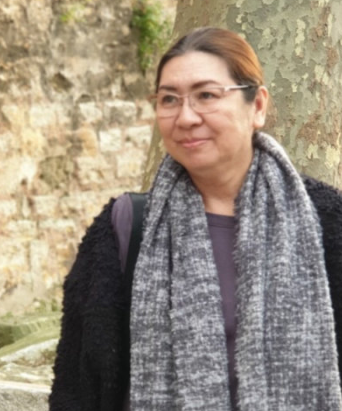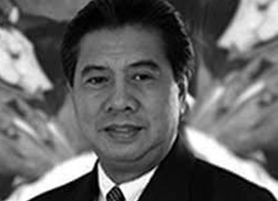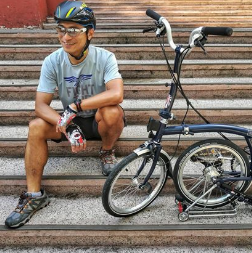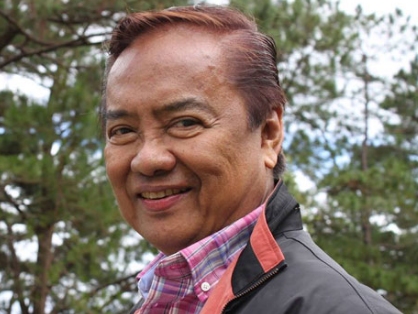In 32 years of journalism, I’ve been very lucky. That is, until this year.
In the numerous conflicts, disasters, and crises I’ve covered – from the coup attempts in the 1980s and the eruption of Mount Pinatubo in 1990 all the way up to the war in Marawi – I have not been a victim and did not know any of the many fatalities.
The coronavirus pandemic of 2020 has been different. Last March, I got infected, developed pneumonia, and was hospitalized for 11 agonizing days. And so far, four friends of mine have already died of Covid-19, twice more than the two friends I know who have recovered from the disease. A very tiny sample size, I know, but a reflection to me of the scale of this calamity., which is far from over. More than any national crisis in my lifetime, this one crashed into my home and social circle.
I am fervently hoping that they will be the last of my friends to lose their lives. Before this pandemic ends, many of us will likely know someone.
COVID-19 fatalities are part of the daily stats that I see as posters on my Facebook wall, numbers shared like changes in the stock market or the prices of vegetables.
But among the most recently reported 623 deaths were friends from various walks of life, first encountered at different points of my life. I want them remembered, because each of those data points was a person.

She was a longtime family friend, a close colleague of my father in the foreign service community, and one of the country’s leading experts on China.
As a journalist, I would interview and consult her, especially as tensions between the Philippines and China heated up. She was a professor at UP, the former director of UP's Asian Center, and the editor of the peer-reviewed journal "Asian Politics and Policy."
She was infected in Paris at an international security conference last March. Her last FB post was an appreciation of the centuries-old venue of the conference, the same military academy where Bonaparte was a student.
When my father passed away last year, she was at the wake and then burial in the Libingan ng mga Bayani. That’s when I last saw her. She wrote a touching essay on my father published in the Inquirer, where she said, "Rod Severino was to me an inspiration and a source of learning for what diplomacy should be like, now and in the future. Always be prepared. Know what results you need to get. Be ready to think out of the box. Deepen your understanding of those closest to you." From her career path, it seemed she took those lessons to heart.
“Chinese society is old and it is new,” she wrote last year in Tulay magazine. “There is the State, and there is the 1.4 billion thinking, breathing, living people. Simplistic thinking will not do.”
But she concluded: “In the context of recent years’ difficult relations between the two states, if one has to take a side, one must take the side of the Filipino people.”
When she passed away last March 21, her family told me they could not even visit her in the hospital, and neither could they attend her cremation, an early indication to me of the new cruelty and utter loneliness of this disease, something I would also experience just days after Aileen’s death.

Alan was an accomplished intellectual and leader whom I first met in the late 1980s when we were colleagues at the Manila Chronicle where he wrote columns and editorials on foreign affairs. Those were exciting days to be both a journalist, as press freedom had suddenly returned to the Philippines, and a foreign policy expert, as the country was then a darling of the international community, having just created a new template for political change by ridding itself of a dictator with little bloodshed.
Alan would become an influential voice inside government on foreign policy matters, and would later head organizations, including a large power company. The last time I saw him was at an embassy function where at the buffet table he sidled up to me to toss a few intriguing bits of inside information about the coal industry. He knew since our early days that journalists were suckers for those bones of juicy leads.
His last professional role in life was in international affairs as president of the Philippine Council for Foreign Relations. He had come full circle from those heady days in the newsroom in the 1980s when he was our newspaper’s resident expert on international relations.
Alan too was infected at the same security conference that Aileen Baviera attended, and was hospitalized in Paris where he died on March 23. Speaking as experts at a high-powered conference on the peculiar situation of the Philippines in one of the world’s hot spots, Alan and Aileen should be remembered as having died in the line of duty.

ATTY. GENE LIM
Gene was one of my more attentive and generous students during the two years I taught at the Ateneo de Manila High School in the mid 1980s. I was just a few years older than my students, who were then in fourth year high and on the cusp of college and adulthood, so it’s been one of the pleasures of my life to see these teens age with me. Now we feel like we’re part of the same grey-haired generation, even if many still retain the habit of calling me “sir.”
Gene was one of the nicest of guys, becoming a successful corporate and litigation lawyer yet never forgetting that Jesuit admonition to be “a man for others” (which was occasionally followed by the typically irreverent “but women for me.”). He was an advocate for the rights of hospital patients in the latter years of his life; he died in the hospital as a COVID-19 patient himself. His death and two weeks in the ICU isolated from his loved ones led an alliance of patient advocates to call for more involvement of COVID-19 patients’ families in their care.
I last saw him when he was the gracious host of a class reunion in his home in Greenhills. I learned that he was a biking and outdoors enthusiast like me. We had been planning on doing something together, but that never happened. His family thinks he was infected in a barbershop in Greenhills in March when that area was the site of an early cluster of infections.
I once posted on Facebook about a near-death experience in El Nido when I was chased into the sea by a pack of Dobermans kept as watchdogs on what I thought was a deserted beach. Gene posted long comments advising me about my legal options in terms of filing a criminal complaint against the owner of the dogs. He knew my rights, and wanted me to stand up for them. That was Gene.

Sen. Alvarez and I did not start out as friends. In fact, ever since he was one of the senators who humiliated my father during Senate confirmation hearings in the late 1980s, I had harbored a simmering contempt. My father had been a Marcos-era diplomat assigned to the US when Alvarez then was a political exile who lobbied against the Marcos government and protested at diplomatic offices in America.
One day, years later, after an official government event, we found ourselves sitting beside each other in the same vehicle. He looked at me with genuine warmth and asked about my father, without a hint of rancor. We buried the hatchet without ever discussing those heated hearings.
Since then I only thought of Alvarez as one of the nation’s leading lights calling attention to the threat of climate change to vulnerable island nations like ours.
Together with Ninoy Aquino, Raul Manglapus and others, Alvarez was an important member of the exile community in the US that had kept the fire of the anti-dictatorship movement burning, until the rest of the nation followed.
In the last days of his life, I received an appeal from his family for a donation of my plasma to their desperately ill father, which only the few recovered Covid patients could give. I was determined to give my blood, which upon later reflection I realized would have been a final act of closure on a painful feud. Alas, I had not yet been given medical clearance to donate blood as tests still found fragments of the virus in my body. I heard that his family had found someone else to provide plasma, but he passed away anyway, on April 20, 2020.
I normally would have gone to the wakes of all four of these exemplary Filipinos and friends. But there weren’t any, yet another tragic and cruel hallmark of this disease.
In-depth special reports and features showcasing the best multimedia storytelling from GMA Integrated News.